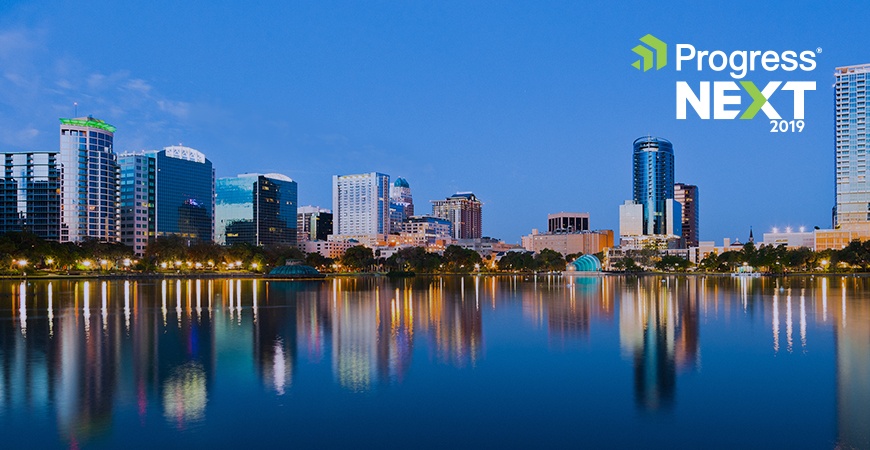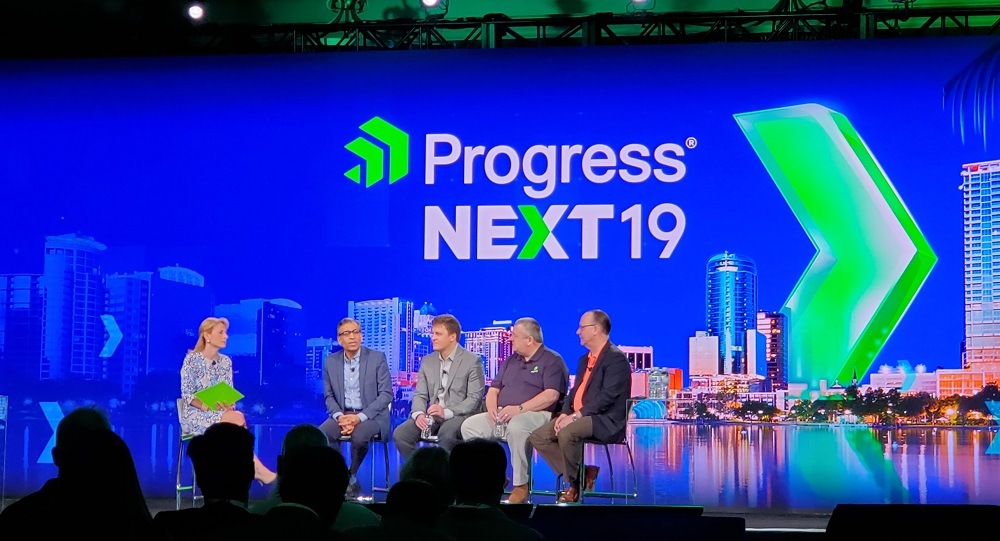
By the bleary eyes on most attendees faces this morning, last night's attendee party at ProgressNEXT 2019 was a smashing success. But day three was not yet time to rest, so, after loading up on coffee, it was time to enjoy a final day of great content.
If you missed them, you can find my recap of day one here and day two here.
#ProgressForTomorrow
Before I get to the content, I want to talk a bit about the highlight of the conference for me personally. As part of ProgressNEXT 2019, Progress wanted to contribute to the local community. As an Orlando-area resident myself, I had the pleasure of coordinating this effort and facilitating our donation to the Washington Shores ELC Head Start. This program helps economically disadvantaged and diverse families in the Orlando community get the support and education they need. Progress CMO Loren Jarrett presented the center director with a check for ten thousand dollars. I really look forward to seeing how the program is able to put these funds to use for the children and families in my community.
I am grateful to my employer @ProgressSW for giving me the opportunity to play a small role in doing some real good for my Orlando community by donating $10k to help the Washington Shores ELC Head Start program #ProgressForTomorrow #ProgressNEXT19 pic.twitter.com/9irF8vuyVU
— Brian Rinaldi (@remotesynth) May 9, 2019
Executive Panel
The day started off with a panel featuring the leadership of Progress Software. The panel answered questions submitted in advance by the conference attendees.
One topic the group discussed is how Progress keeps a focus on innovation. They talked about Progress Labs, a program that incubates new ideas that may become products and how innovations like NativeChat came out of this program. They also talked about programs such as hackathons and dedicated "innovation time" that allows product teams to innovate. Progress CEO Yogesh Gupta noted that innovation goes beyond the product focus and includes innovating in things like our business practices.
Another question focused on organizational fear around adopting high productivity tools when workers fear that the tools may cost them their jobs. The group noted that while they understood the fear that these changes can bring, that the problem at nearly every organization was more work to do than resources. These tools can actually allow developers to focus on the challenging tasks by freeing them from the mundane ones.
Kinvey Studio Deep Dive
Speaking of high productivity tools, Svetozar Toskov walked though some of the more advanced features of Kinvey Studio in his "Kinvey Studio Technical Deep Dive" session.
It was incredibly impressive to see him walk through building a complete "real world" application with complex functionality, all built on the fly during the session. He explored the structure of the code of a Kinvey Studio project that is fully open and available to the developer to modify. He also walked through building, debugging and deploying a mobile app using the tool.
Modern Application Architectures
Michael Salinger presented "Best Practices for Modern App Architectures." In this session, he pulled upon his years of experience as a developer as well as building Kinvey to look at some of the challenges facing enterprises in their app development today and some of the tools that can help. For example he gave advice on choosing the right programming language for the job, leveraging open source, utilizing productivity enhancers as well as cross-platform tools.
See You Next Year!
If you missed this year's event or just want to reminisce, I invite you to watch this recap video of ProgressNEXT 2019.
The last highlight of the day I want to mention was the ProgressNEXT 2020 announcement. Next year's event will be back in Boston on June 14-17, and you can register today here.
I hope to see you all there!
Brian Rinaldi
Brian has been a developer for over 20 years. Currently he works on developer content at Progress. He is a frequent speaker and author, serving as co-editor of the Mobile Dev Weekly newsletter and book author for O’Reilly. You can follow Brian via @remotesynth on Twitter.

